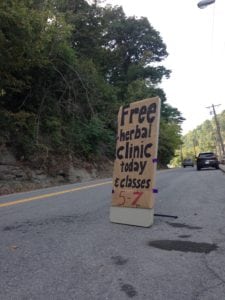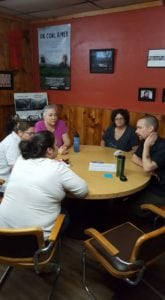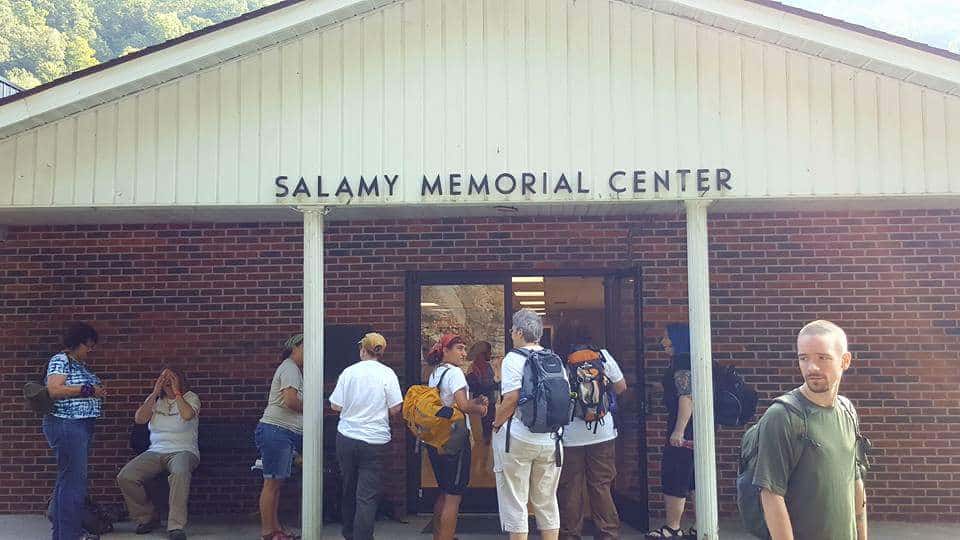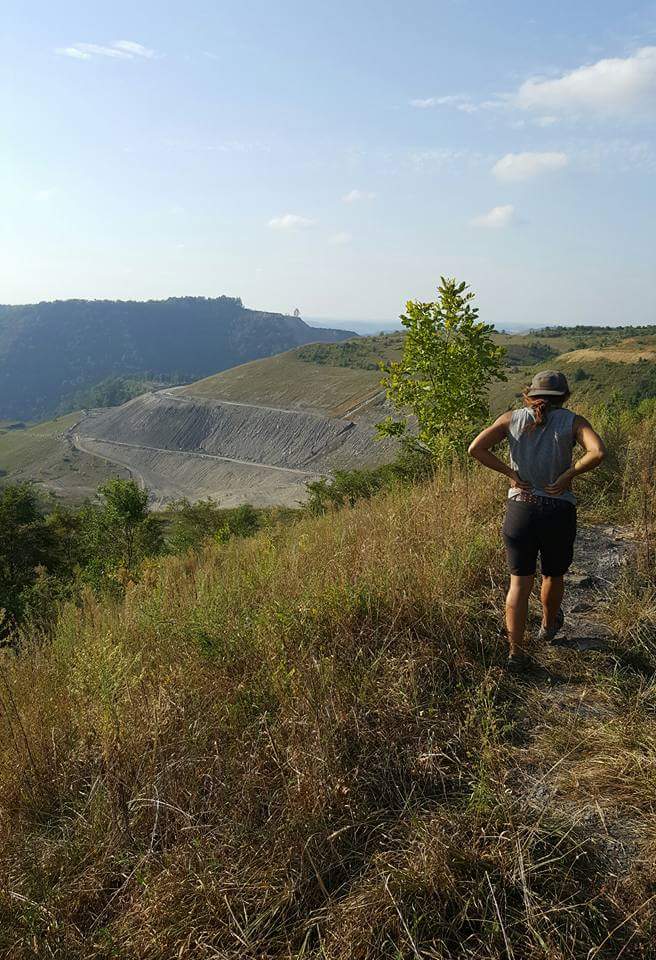Boston for West Virginia
Last year Ryn went to Coal River Valley, West Virginia as part of an Herbal Medics team doing free clinic and community education work for communities affected by mountain top removal. Throughout the year, people in the community who were interested in learning have been studying online with us for free to build their herbal self-sufficiency. At the end of July, we’re heading back to Coal River Valley, and we’re so excited about how much they’ve built in just one year!
Start Somewhere
Hannah Spencer and Jen-Osha Buysse, who originally invited us to Coal River Valley, were already very active in teaching community kids outdoor skills and basic plant awareness through their Mountain SOL School. They were excited to incorporate herbalism into their programs, and started studying with Sam Coffman’s Basic Herbalism class. By the time that the team got there the first time, they already had herbal basics integrated into their work.
Learning While Doing
The Herbal Medics team was actually three teams in one. The clinical team organized and provided a week of free herbal and first aid clinics in the communities of Whitesville and Naoma. Community members could come in and get a consultation and herbs to help out with the many health problems they suffered with due to the pollution and stress of living in mountaintop-removal mining country.
During that time, Hannah, Jen-Osha, and other local community members were getting hands-on experience with the clinical model Herbal Medics has developed. This included direct involvement and input into how to set up consultation spaces and the apothecary, what was needed in terms of materials and manpower, and how to manage an efficient stationary clinic as well as mobile units.
While the clinicians were consulting, another team lead by Stephen Voss and his family were setting up water catchment and filtration systems to provide clean safe water, again teaching while doing. They engaged community members in the process, teaching skills which, frankly, every person should know but that we are never really taught anymore, because water flows from the tap. It doesn’t take much to disrupt that water though – even events far less devastating than mountaintop removal and hurricanes can mean disruption in water availability: building simple, effective water purification systems is a skill we should all cultivate.
And while that was all happening, a graduate of our Clinical Herbalism program, Kim Almeida, was teaching permaculture and helping to build community gardens. Joining forces with activists from the RAMPS campaign, they were able to create sustainable gardens that this year are already providing the majority of the herbs we’ll be using in the clinics!
Sustainable Support
During the fall and winter, Hannah studied with Katja and Sam in the Emergent Responder program, learning more about running community clinics and emergency clinics, as well as emergency ambulatory and herbal care. In this case, “emergency” is defined as “no higher definitive care available or higher definitive care is distant” – which in rural areas of this country could just be your regular Tuesday. West Virginia is already medically underserved, and many of the people there rely on the Affordable Care Act. As we watch Congress debating its fate, the definition of “emergency” is likely to expand for these communities.
Throughout the spring, the communities have been gardening, and are now sustainably producing significant quantities of the herbs needed to stock the clinics.
Now, a year later, we’ll go back, this time with a much smaller team of “outside” people: instead, most of the clinical staff is coming from the local community, and this is an opportunity for further training and experience.
We’re so excited that we’re able to share knowledge in this way. Herbalism belongs to each of us, and self-sufficiency in health care is a critical skill that used to be part of being human. Supporting communities and individuals looking to cultivate these skills is a key part of our work and we feel honored to be invited in to offer our help!
If you are interested in free clinic work and getting started where you are, you can check out this podcast we did on HerbRally – we share the methods that we use for free clinic work, and it might be helpful for you!

Join our newsletter for more herby goodness!
Get our newsletter delivered right to your inbox. You'll be first to hear about free mini-courses, podcast episodes, and other goodies about holistic herbalism.




